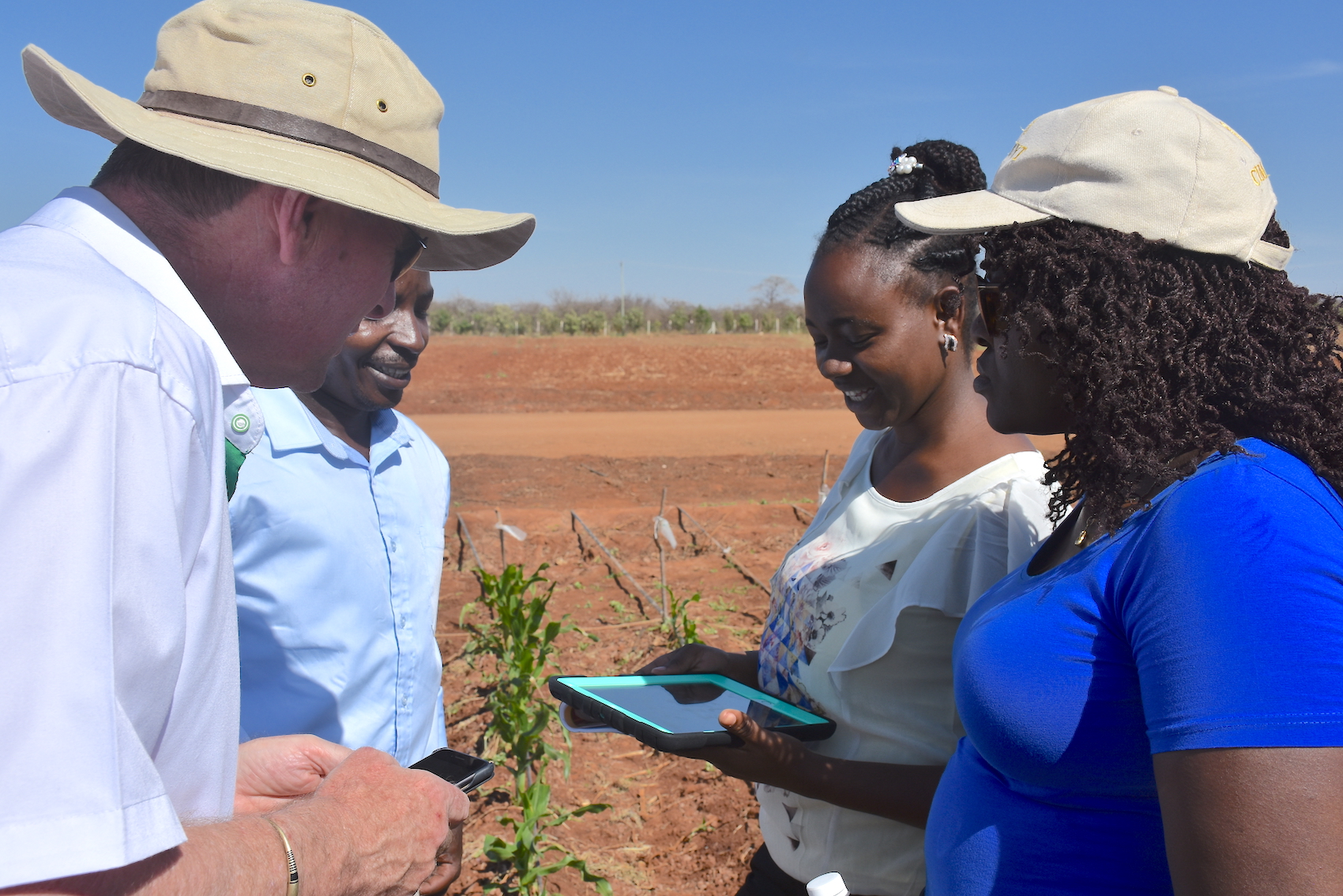NAIROBI (Kenya) — More than 20 representatives of eastern and southern African seed companies and regulatory agencies recently took part in the demonstration of a new seed certification application that can help get quality seed to market more quickly and curb sales of counterfeit seed.
As part of an event organized by the International Maize and Wheat Improvement Program (CIMMYT) at the Kiboko research station of the Kenya Agricultural & Livestock Research Organization (KALRO) on September 17, 2018, participants field-tested a beta version of SeedAssure, a digital platform that gives automatic feedback on compliance and seed production management, along with remedy options.
SeedAssure was developed by Cellsoft, a supply chain management software company, with input from the Alliance for a Green Revolution in Africa (AGRA), the Qualibasic Seed Company, the Kenya Plant Health Inspectorate Service (KEPHIS) and CIMMYT.
“This is very useful for companies like ours, spread as we are over different countries, to manage at a distance our seed growers,” said Andy Watt of QualiBasic Seed Company, who has been testing SeedAssure on the company’s farms. “The application’s dashboard will point out which farms to visit quickly for corrections.”
Mobile innovations enhance quality and speed
For over a decade, the region’s seed sector has sought fast, cost-effective and transparent seed quality control and certification approaches for use across the value chain and the region. Seed companies often rely on under-staffed national certification agencies that may miss critical inspections or give inaccurate reports. Registration of new varieties can take many years, discouraging investment in improved seed and impeding regional trade.
Worse, by some estimates as much as 40 percent of the seed sold in eastern and southern Africa is falsely labelled or not what farmers are told they are buying. KEPHIS recently confiscated over 13 tons of “fake” seeds.
The seed sector has sought mobile innovations such as tablet-based field inspections whose data load to centralized, cloud-based dashboards.
With SeedAssure’s “traffic light” system, field inspection results for factors such as plant population will score green (complied – good quality), amber (needs improvement) or red (reject) and be readily visible to key actors in the seed certification and supply chain, according to David Laurence-Brown, SeedAssure co-developer.
“This quality assurance system can help seed companies get licenses faster, speeding product to market and greatly reducing the financial risk of getting new varieties to farmers,” said Laurence-Brown. “The vision is that all actors have access to timely and accurate data on products, licensing and trade movements, with quality control checks along the value chain.”
He said that SeedAssure features 260 critical questions in 13 seed production checklists. “Putting the right questions in the right order is crucial to determine how sustainable your seed production is,” Laurence-Brown explained.

Fixing the bugs
Participants emphasized that national and regional regulatory bodies needed to be on board.
“Advocacy has to be done at different levels, from COMESA, national plant protection organizations, big and small seed companies, and research institutes and donors,” said Kinyua Mbijjewe, a well-known figure in the African seed industry and co-creator of SeedAssure, adding that this has been underway for a year now with a positive response, and public engagement is now ramping up with partners like AGRA and USAID.
Participants also suggested simplifying SeedAssure by reducing the number of questions and the subjectivity of certain data fields. For example, they observed that a more objective method was needed for scoring pest infestations, rather than SeedAssure’s current approach of rating infestations as low, moderate or intense via visual estimation.
“This will not be adopted if it’s too complex,” said Nicolai Rodeyns, NASECO seed company, Uganda.
Developers are addressing these issues, as well as comments that the application should not mix compliance and seed production management features.
CIMMYT announced that it would offer members of the International Maize Improvement Consortium (IMIC) a one-year trial subscription to SeedAssure.
Finally, AFSTA, AGRA, CIMMYT, COMESA, USAID, and other partners are forming a SeedAssure Alliance to support testing and rollout with companies and public organizations in eastern and southern Africa.